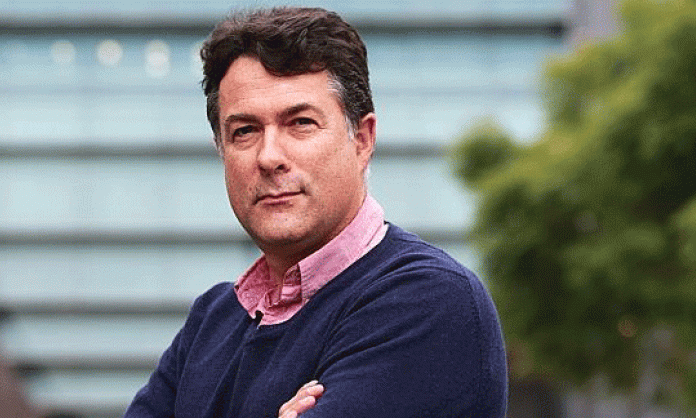In October 2013, the Israel-based law centre Shurat HaDin filed a test case in the Australian Federal Court against Professor Jake Lynch, the director of the University of Sydney’s Centre for Peace and Conflict Studies, over his support for the Palestinian Boycott, Divestment and Sanctions (BDS) campaign.
Similar “lawfare” cases, which seek to intimidate supporters of BDS, have also been carried out in France, the UK and in the USA.
Lawfare proponents, such as Shurat HaDin, regularly use SLAPP suits (strategic lawsuits against public participation) to smear political opponents and tie them up in court or financially cripple them.
The court case against Lynch centres on his refusal to sponsor an application by Israeli academic, Dan Avnon, for a fellowship at Sydney University.
Shurat HaDin accused Lynch and the BDS campaign of breaching the Racial Discrimination Act. However, as Lynch explains to Red Flag, he declined to support Avnon’s application not because he was Israeli or Jewish but because the fellowship which Avnon was applying for was a bilateral, funded fellowship between Sydney University and the Hebrew University in Israel.
The BDS campaign promotes boycotts of businesses and institutions that either directly or indirectly contribute to human rights abuses against Palestinians, violate international law or participate in “rebranding” campaigns that white wash Israel’s human rights and war crimes record.
“Through this collaboration at an institutional level, we effectively internalise the Hebrew University’s complicity in the occupation [of Palestine]”, says Lynch.
“It runs training courses for the military; its Mount Scopus campus is partly built on land seized from its rightful Palestinian owners, and the chairman (sic) of its Board of Governors is Michael Federmann, who is also Chairman of Elbit Systems, one of Israel’s biggest arms dealers.
“I reserve my right not to participate in, or cooperate with a scheme to which I object in principle.”
On March 14, Justice Alan Robertson provisionally rejected as inadmissible large sections of Shurat HaDin’s statements and affidavits because they did not establish any facts pertinent to the case.
In October, when Shurat HaDin launched the action, it submitted a sweeping 30-page claim. According to Shurat HaDin, Lynch not only discriminated against Avnon but was also responsible for depriving all Israelis of cultural, academic and other opportunities.
Lynch’s lawyers rejected all charges and asked for the complaint to be struck down.
In rejecting much of Shurat HaDin’s claims, Justice Robertson noted that they had failed to include clear facts linking Lynch’s support for BDS with specific acts of racial discrimination. “You’ll have to do a lot of work to persuade me of the correctness of that position”, he said.
Lynch’s lawyers argue that the case is politically motivated and part of the broader offensive by the Israeli state against the BDS campaign. They also noted Lynch’s refusal to sponsor Avnon had not caused him any disadvantage and that he had successfully taken up another fellowship at the university.
The political nature of Shurat HaDin’s complaint is evident: not only has Avnon not been approached by Shurat HaDin to join the suit, be a witness or even submit an affidavit, the Israeli lawfare group is not seeking any financial penalties against Lynch should they win the case.
Instead it is demanding that Lynch publicly renounce the boycott campaign and apologise for supporting it.
It is also attempting to have support for the Palestinian boycott campaign against Israel ruled illegal under Australian law.
Shurat HaDin’s lawfare attack on Lynch, academic freedom and freedom of speech has been condemned by more than 2,000 Australian and international human rights advocates from more than 60 countries. The case has been adjourned until 24 April.








